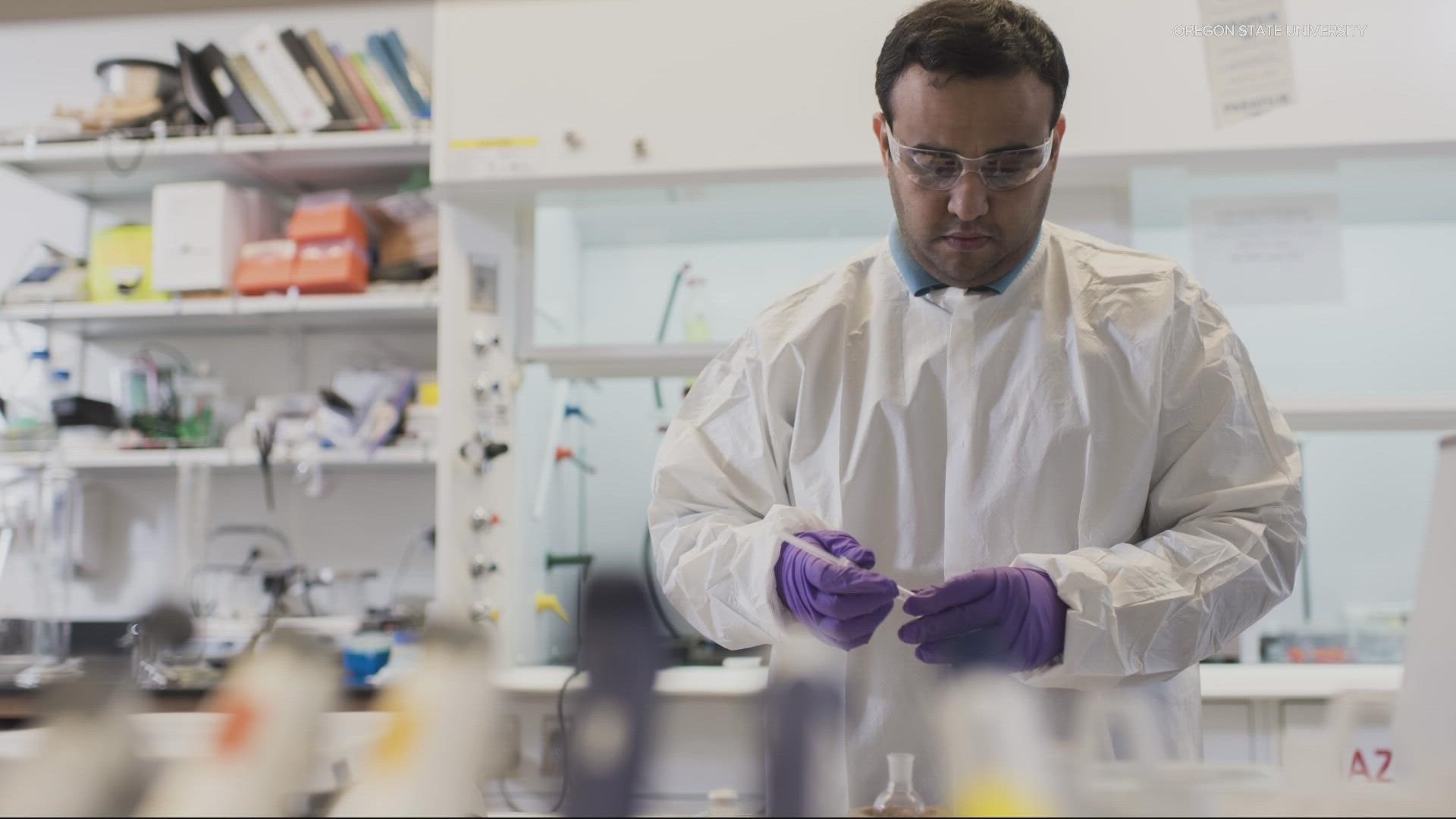PORTLAND, Ore. — A team of scientists in Oregon have developed a new therapy that, if approved, could significantly increase a patient's odds of surviving pancreatic cancer.
The scientists are at both Oregon State University's (OSU) College of Pharmacy and at the Brenden-Colson Center for Pancreatic Care at Oregon Health and Science University's (OHSU) Knight Cancer Institute.
Doctors say it depends on when the cancer is first detected, but the odds of surviving usually range from 11%-30%. Pancreatic cancer is the fourth deadliest type of cancer.
Recently Alex Trebek and Supreme Court justice Ruth Bader Ginsburg were added to the list of those who died from the disease.
For the last eight years, Adam Alani and his team at OSU have been working on a drug that would attack certain types of cancer — most notably those that are considered hypoxic, or low in oxygen, like pancreatic cancer.
"It's a game of patience and perseverance and eventually you're going to have something that breaks through the process." Alani said.
What broke through for them could be a breakthrough in the fight to defeat cancer. Cancer in the pancreas is particularly difficult to fight. When it develops, it creates its own micro-environment — putting up a sort of shield that protects it from drugs trying to defeat it. It's also very hypoxic, dropping the oxygen levels in the cells around it from a normal 12% to less than 1%.
So Alani's team used the very defense that the pancreatic cancer tumor uses to defend itself, to beat it.
They created a drug that's protected from low oxygen levels that, helping it survive longer and have more effectiveness in attacking the cancer.
"We spent a lot of time trying to come up with the best package for them and then we said ok, now we have the best package and now let's see if they're going to work or not," Alani said.
RELATED: Scientist finds more than 100 people who attended a New Jersey high school now have brain cancer
There are no early detection screenings for pancreatic cancer. Co-Director of the Brenden-Colson Center for Pancreatic Care Dr. Brett Sheppard says that usually when signs of the cancer present itself, it's too late.
"For pancreatic cancer you have the patient turning jaundiced or having abdominal pain, which is not really detection because by then, the disease is fairly far along," Dr. Sheppard said.
Alani's team provided the drug, and Sheppard's team provided the necessary tissues and cancer cells to put those drugs to work on.
"This is an example of collaboration between two different sites and it's how we make progress in this world." Dr. Sheppard said.
Through trial and error and using mice as research, both teams found that after 100 days the cancer in the mice was gone.
"We looked at the tumor tissue all over it and it become more responsive to the treatment, and this is why we ended with a tumor in general cured in the mice and it did not reoccur again." Alani said.
That gives someone like Dr. Sheppard, that has spent his entire career trying to find a cure, hope.
"It not only gives me hope, but I hope that it gives patients and their families hope, because we've made a lot of progress." Sheppard said.
Dr. Sheppard said using this as a viable treatment against pancreatic cancer is still a few years away. It would need to go through multiple phases of human trials and get regulatory approval.
You can read the full research results here.

